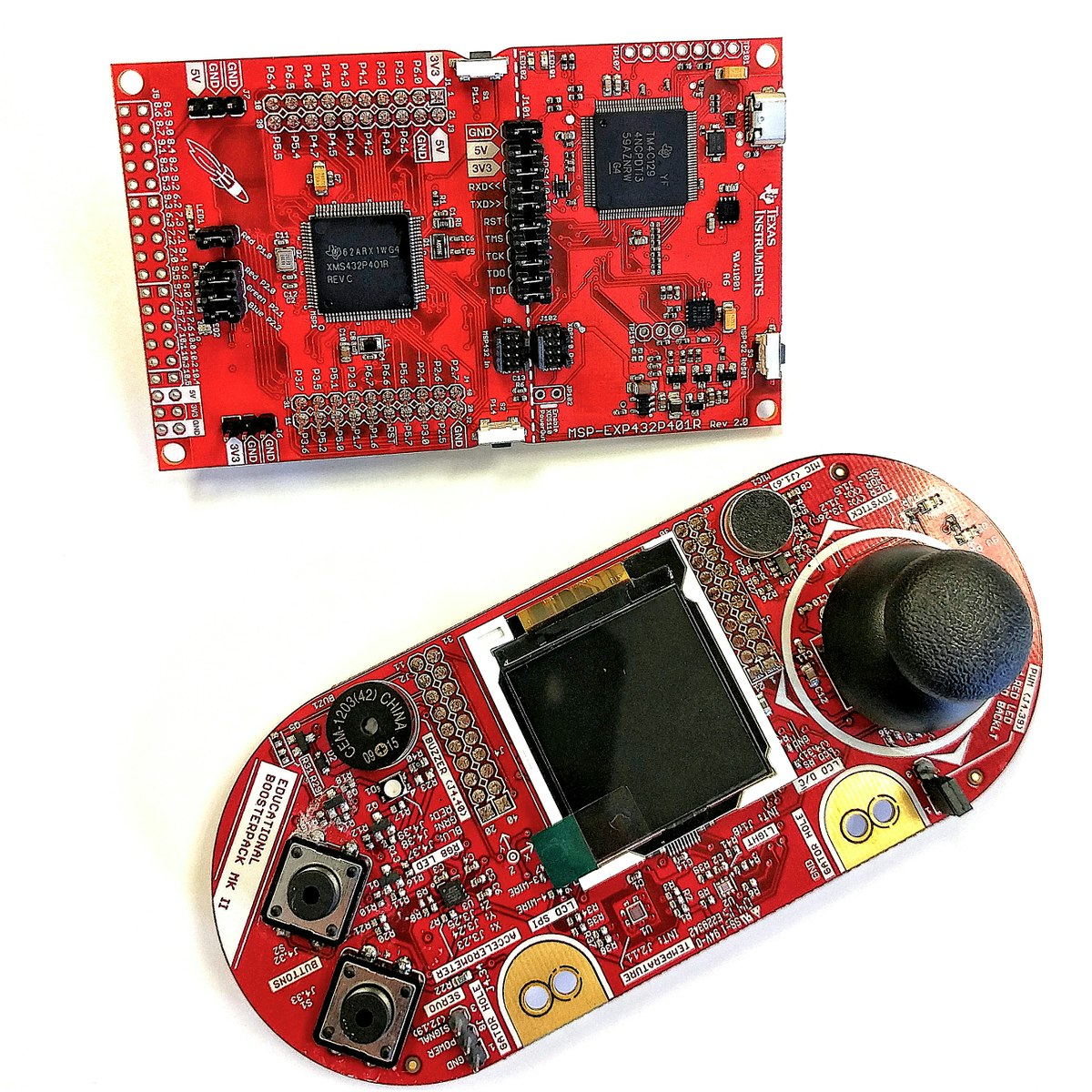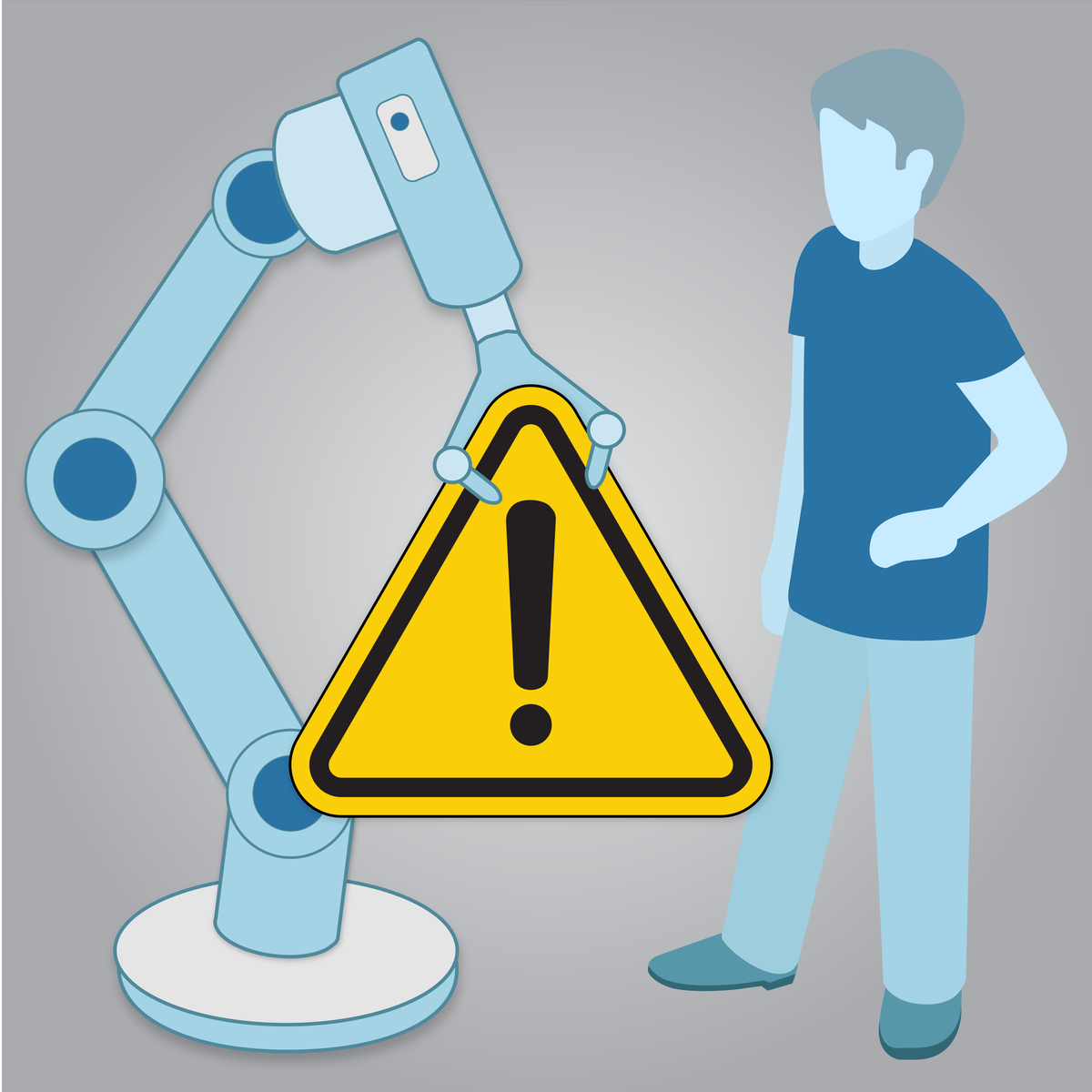Computer Engineer
A Comprehensive Guide to a Career as a Computer Engineer
Computer Engineering is a fascinating and dynamic field that blends electrical engineering with computer science. At its core, it involves the design, development, and testing of computer systems and components. This includes everything from the microprocessors that power our devices to the complex networks that connect them, bridging the physical world of hardware with the logical world of software.
Imagine designing the intricate circuitry of the next smartphone, developing the embedded systems that control autonomous vehicles, or creating the hardware infrastructure for cutting-edge artificial intelligence. These are just a few examples of the exciting challenges computer engineers tackle daily. The field offers the chance to innovate at the intersection of hardware and software, contributing to technologies that shape nearly every aspect of modern life.
What is Computer Engineering?
This section delves into the specifics of computer engineering, clarifying its scope and how it relates to similar disciplines.
Defining the Discipline
Computer engineering focuses on the practical application of scientific and mathematical principles to design and build computing systems. It encompasses hardware components like circuit boards, processors, memory devices, and peripherals, as well as the firmware and software that enable them to function. Computer engineers work across the entire lifecycle of a system, from initial concept and design to implementation, testing, and maintenance.
The field requires a deep understanding of electronics, digital logic, computer architecture, and software development. Engineers in this discipline often specialize in areas like embedded systems, hardware design, network engineering, or systems integration. They are problem-solvers who apply engineering principles to create efficient, reliable, and innovative computing solutions.
Ultimately, computer engineers ensure that hardware and software components work together seamlessly. They might design a custom chip for a specific application, develop the low-level software (firmware) that controls a device, or architect complex systems involving multiple interconnected computers and peripherals. Their work is essential in creating the technological devices and infrastructure we rely on.
Computer Engineering vs. Related Fields
It's common to confuse computer engineering with computer science and electrical engineering. While there's overlap, distinct differences exist. Computer science primarily focuses on software, algorithms, computation theory, and data structures. Computer scientists develop operating systems, applications, and the theoretical foundations of computing.
Electrical engineering, on the other hand, has a broader scope covering electricity, electronics, and electromagnetism. While some electrical engineers specialize in computer hardware, the field also includes power generation, signal processing, and telecommunications, often with less emphasis on the software integration aspect compared to computer engineers.
Computer engineering sits at the intersection, requiring proficiency in both hardware (like electrical engineers) and software (like computer scientists). They possess a unique ability to understand and design the complete system, from the electronic components up through the software layers. This interdisciplinary nature makes them versatile professionals capable of tackling complex system-level challenges.
Industries Employing Computer Engineers
Computer engineers are in demand across a wide array of industries due to the ubiquitous nature of computing technology. The technology sector itself is a major employer, including companies focused on semiconductors, computer hardware manufacturing, software development, and cloud computing services.
Beyond tech, computer engineers find roles in telecommunications, aerospace, automotive (especially with the rise of autonomous vehicles), defense, healthcare technology (medical devices), consumer electronics, finance (high-frequency trading systems), and research institutions. Essentially, any industry relying on sophisticated computer systems requires the expertise of computer engineers.
Government agencies also employ computer engineers for various purposes, including national security, infrastructure management, and scientific research. The skills learned in computer engineering are highly transferable, offering diverse career opportunities in numerous sectors globally.
Core Responsibilities of a Computer Engineer
Understanding the day-to-day tasks provides insight into what working as a computer engineer truly entails.
Designing and Developing Hardware and Software Systems
A primary responsibility is the design and development of computer hardware components. This can involve designing microprocessors, memory chips, circuit boards (PCBs), and other electronic components. Engineers use specialized software tools like Computer-Aided Design (CAD) for schematic capture and layout.
Alongside hardware design, computer engineers often develop the low-level software, or firmware, that controls the hardware. This requires expertise in programming languages like C or C++, and sometimes assembly language, to write efficient code that interacts directly with the hardware components. They ensure the software correctly manages the hardware resources.
This design process involves translating system requirements into detailed specifications, selecting appropriate components, simulating designs to verify functionality, and building prototypes. It requires a blend of creativity, analytical thinking, and meticulous attention to detail to create robust and efficient systems.
For those interested in the hardware design aspects, foundational knowledge in digital logic and circuit design is crucial. These courses provide an introduction to the principles behind designing digital systems.
Integrating Hardware and Software
A key challenge in computer engineering is ensuring that hardware and software components work together harmoniously. Engineers are responsible for integrating these elements into a functional system. This involves writing drivers, developing Application Programming Interfaces (APIs), and configuring operating systems or real-time operating systems (RTOS).
They must understand the interfaces between different hardware components and how software interacts with them. Debugging integration issues often requires using tools like oscilloscopes, logic analyzers, and software debuggers to pinpoint problems that could lie in either the hardware or the software domain.
This integration phase is critical for system performance and reliability. Computer engineers meticulously test the interactions between components under various conditions to ensure the system meets its specifications and operates correctly in its intended environment, such as in embedded systems found in cars or medical devices.
These courses delve into the practical aspects of interfacing and programming embedded systems, where hardware and software integration is paramount.
Troubleshooting and Optimizing Systems
Computer engineers are frequently tasked with diagnosing and resolving issues in existing computer systems. This involves systematic troubleshooting to identify the root cause of problems, which could range from hardware failures to software bugs or performance bottlenecks.
They use diagnostic tools and methodologies to isolate faults. This might involve analyzing system logs, running tests, measuring signals, or examining code. Once the problem is identified, they develop and implement solutions, which could involve hardware repairs, software patches, or system reconfiguration.
Beyond fixing problems, computer engineers work on optimizing system performance, power consumption, and reliability. This could involve redesigning hardware components, rewriting critical software sections, or adjusting system parameters to achieve better efficiency or speed. Continuous improvement is often a key aspect of the role.
Collaborating with Cross-Functional Teams
Computer engineering projects are rarely solo endeavors. Engineers typically work as part of larger, cross-functional teams that may include software developers, electrical engineers, mechanical engineers, project managers, and quality assurance testers. Effective communication and collaboration are essential.
They need to articulate technical concepts clearly to team members with different backgrounds and contribute to design discussions, code reviews, and project planning meetings. Understanding the perspectives and constraints of other disciplines is crucial for successful system development.
This collaborative environment requires strong teamwork skills, adaptability, and the ability to negotiate technical trade-offs. Sharing knowledge and supporting colleagues are important aspects of contributing to a productive team dynamic.
Formal Education Pathways
A structured education is the most common route into computer engineering, providing the necessary theoretical foundation and practical skills.
Pre-University Preparation
Aspiring computer engineers should focus on building a strong foundation in mathematics and science during high school. Key subjects include calculus, physics (especially electricity and magnetism), and chemistry. Strong analytical and problem-solving skills developed through these subjects are invaluable.
Introductory programming courses are also highly beneficial. Learning languages like Python or Java can provide a head start and develop logical thinking. Familiarity with basic computer hardware concepts, perhaps through hobbyist electronics or robotics clubs, can also spark interest and provide practical context.
Taking advanced placement (AP) or equivalent courses in these areas can strengthen university applications and potentially grant college credit, allowing students to take more advanced courses sooner.
Undergraduate Degree Programs
A bachelor's degree in Computer Engineering (often a B.S. or B.Eng.) is typically the minimum requirement for entry-level positions. These programs usually span four years and cover fundamental topics in electrical engineering, computer science, and mathematics.
Core coursework often includes circuit theory, digital logic design, computer architecture, data structures and algorithms, operating systems, embedded systems, and calculus-based physics. Laboratory courses provide hands-on experience with designing, building, and testing circuits and systems.
Many programs offer specialization tracks in areas like VLSI (Very Large Scale Integration) design, embedded systems, computer networks, robotics, or cybersecurity. Students often complete a capstone design project in their final year, applying their knowledge to solve a real-world engineering problem.
These courses cover foundational concepts often taught in undergraduate computer engineering programs, focusing on computer architecture and organization.
Graduate Studies and Research
While a bachelor's degree is sufficient for many roles, a Master's (M.S. or M.Eng.) or Doctoral (Ph.D.) degree can open doors to specialized research and development positions, advanced technical leadership, or academic careers. Graduate programs allow for deeper specialization in specific subfields.
Master's programs typically take one to two years and involve advanced coursework and often a research project or thesis. They provide deeper expertise in areas like advanced computer architecture, VLSI design, embedded systems optimization, or network security.
A Ph.D. is a research-focused degree, usually taking four to six years beyond the bachelor's degree. It involves extensive original research culminating in a dissertation. Ph.D. graduates often pursue careers in academia or cutting-edge industrial research labs, pushing the boundaries of computer engineering knowledge.
Accreditation and Program Recognition
When choosing an engineering program, accreditation is an important factor. In the United States, look for programs accredited by ABET (Accreditation Board for Engineering and Technology). Accreditation ensures that the program meets established quality standards for the profession.
Graduating from an accredited program is often a prerequisite for obtaining a Professional Engineer (PE) license, although not all computer engineering roles require licensure. Employers often prefer candidates from accredited programs as it signals a rigorous and comprehensive education.
Researching program rankings and faculty expertise in specific areas of interest can also help in selecting the right institution. University reputation and industry connections can influence internship and job opportunities after graduation.
Online and Self-Directed Learning
Formal degrees are not the only path. Online resources and self-study offer flexible ways to gain skills, supplement education, or pivot into computer engineering.
Key Topics for Self-Study
For those pursuing self-directed learning or supplementing formal education, focusing on core computer engineering topics is essential. Key areas include digital logic design, computer architecture, microcontrollers, embedded systems programming (especially using C/C++), basic electronics, and data structures.
Understanding operating system concepts and computer networking fundamentals is also valuable. Platforms like OpenCourser aggregate thousands of online courses from various providers, covering these essential topics. Learners can structure their own curriculum by selecting courses that align with their goals.
Starting with foundational mathematics and physics provides a solid base. Gradually moving into electronics, digital logic, and then computer architecture and programming creates a logical learning progression. Persistence and a structured approach are key to success in self-study.
These courses provide introductions to embedded systems, a core area in computer engineering often suitable for self-study or supplementing formal education.
Building a Project Portfolio
Theoretical knowledge is important, but demonstrating practical skills is crucial, especially for self-taught individuals or career changers. Building a portfolio of personal projects showcases your abilities to potential employers. Projects can range from designing simple circuits to programming microcontrollers or developing small embedded systems.
Choose projects that align with the specific area of computer engineering you're interested in. Document your projects thoroughly, explaining the design choices, challenges faced, and solutions implemented. Hosting your code on platforms like GitHub is standard practice.
Contributing to open-source hardware or software projects can also be a valuable addition to your portfolio. Engaging with online communities and forums related to electronics and embedded systems provides opportunities to learn from others and collaborate.
Consider leveraging online courses that include hands-on projects. OpenCourser features like the "Activities" section on course pages can suggest supplementary projects to reinforce learning and build portfolio pieces.
Transitioning to Professional Roles
Making the leap from learning to a professional role requires focused effort. Networking is vital; attend virtual or local meetups, conferences, and career fairs related to engineering and technology. Connect with professionals in the field through platforms like LinkedIn.
Tailor your resume to highlight relevant skills and projects acquired through online courses and self-study. Practice technical interview questions, which often cover fundamentals of digital logic, computer architecture, programming, and problem-solving. Be prepared to discuss your portfolio projects in detail.
Consider entry-level roles like junior engineer, technician, or technical support, which can provide valuable industry experience and pathways for advancement. Internships, even unpaid or project-based ones, can be excellent stepping stones. Remember that persistence is key; the transition takes time and effort, but it is achievable with dedication.
Making a career change can feel daunting, but many have successfully navigated this path. Focus on building solid foundational knowledge and practical skills. Celebrate small milestones along the way, and don't be discouraged by challenges. The demand for skilled engineers offers significant opportunities.
Combining Self-Study with Certifications
While not always required, industry certifications can sometimes supplement a portfolio and demonstrate specific competencies, especially when lacking a formal degree. Certifications related to specific hardware platforms (e.g., CompTIA A+ for hardware fundamentals), networking (e.g., Cisco CCNA), or embedded systems might be relevant depending on career goals.
Evaluate certifications carefully; focus on those recognized and valued within the specific subfield or industry you target. Some online course platforms offer certificates upon completion, which can be listed on resumes or LinkedIn profiles, though their weight varies among employers compared to formal degrees or recognized industry certifications.
Ultimately, a strong portfolio demonstrating practical skills and a solid understanding of fundamental concepts often carries more weight than certifications alone. Use certifications strategically to fill specific knowledge gaps or validate expertise in niche areas. The OpenCourser Learner's Guide offers insights on evaluating and utilizing course certificates effectively.
Career Progression for Computer Engineers
A career in computer engineering offers various paths for growth and specialization over time.
Entry-Level Roles and Skill Expectations
Graduates typically start in entry-level positions such as Junior Computer Engineer, Hardware Engineer I, or Embedded Software Engineer. Initial responsibilities often involve supporting senior engineers, performing testing and validation, debugging existing designs, or working on specific modules of larger projects.
Employers expect entry-level engineers to possess strong fundamentals in digital logic, computer architecture, programming (often C/C++), and basic electronics. Good problem-solving skills, eagerness to learn, and effective communication are also crucial. Experience gained through internships or significant academic projects is highly valued.
The first few years focus on building practical experience, learning industry tools and processes, and developing a deeper understanding of the specific technologies used by the employer. Mentorship from senior engineers plays a significant role in professional development during this stage.
Mid-Career Specialization Paths
After gaining several years of experience, computer engineers often specialize in specific domains. Common specialization paths include VLSI/ASIC design, focusing on creating custom integrated circuits, or FPGA design, using programmable logic devices.
Other paths include embedded systems development (designing systems for specific applications like automotive or IoT devices), computer architecture (designing processors and memory systems), network engineering (designing and managing computer networks), robotics, or cybersecurity hardware.
Choosing a specialization often depends on individual interests, industry trends, and opportunities within an organization. Continuous learning is essential to stay current in rapidly evolving fields like Artificial Intelligence hardware acceleration or Quantum Computing interfaces.
Leadership and Management Opportunities
Experienced computer engineers can progress into technical leadership or management roles. Technical lead positions involve guiding engineering teams, architecting complex systems, and making critical technical decisions. These roles require deep technical expertise and strong mentorship abilities.
Alternatively, engineers may move into project management or engineering management. These roles involve overseeing project timelines, budgets, and resources, as well as managing teams of engineers. Strong organizational, communication, and interpersonal skills become increasingly important.
Some computer engineers leverage their technical background to transition into roles like systems architects, technical consultants, or product managers. An advanced degree, like an MBA or a Master's in Engineering Management, can sometimes facilitate transitions into broader management roles.
Salary Trends and Geographic Demand
Computer engineering generally offers competitive salaries, reflecting the high demand for skilled professionals. Compensation varies based on experience, education level, specialization, industry, and geographic location. Areas with high concentrations of technology companies often offer higher salaries but also have a higher cost of living.
According to the U.S. Bureau of Labor Statistics (BLS), the job outlook for computer hardware engineers is projected to show growth, driven by the need for innovation in computer hardware and systems. Demand is particularly strong in areas related to cloud computing, IoT, AI, and cybersecurity.
Salaries tend to increase significantly with experience and specialization. Engineers in high-demand fields like AI hardware acceleration or cybersecurity often command premium salaries. Staying updated with market trends and continuously developing relevant skills is key to maximizing earning potential.
Essential Skills and Competencies
Success in computer engineering requires a combination of technical expertise and essential soft skills.
Technical Skills
Strong technical proficiency is fundamental. This includes mastery of digital logic design, computer architecture principles, and microprocessor/microcontroller systems. Proficiency in hardware description languages (HDLs) like Verilog or VHDL is crucial for hardware design roles.
Programming skills, particularly in C and C++, are essential for firmware development and system-level programming. Familiarity with assembly language for specific processor architectures can also be necessary. Knowledge of operating systems, data structures, and algorithms is also important.
Expertise in using relevant tools is expected, including CAD software for circuit design (e.g., Altium Designer, OrCAD), simulation tools (e.g., ModelSim, PSpice), development environments (IDEs), version control systems (e.g., Git), and lab equipment like oscilloscopes and logic analyzers.
Soft Skills
Technical skills alone are insufficient. Strong problem-solving abilities are paramount, involving analytical thinking, creativity, and persistence in tackling complex challenges. Computer engineers must be adept at breaking down complex problems into manageable parts.
Effective communication skills, both written and verbal, are critical for collaborating with team members, documenting designs, and presenting findings. The ability to explain complex technical concepts to diverse audiences is highly valued.
Teamwork, adaptability, attention to detail, and time management are also essential soft skills. Engineers must manage multiple tasks, meet deadlines, and adapt to changing project requirements and technologies in a fast-paced environment.
Emerging Skill Demands
The field is constantly evolving, creating demand for new skills. Expertise in areas related to Artificial Intelligence (AI) and Machine Learning (ML), particularly in designing hardware accelerators (e.g., GPUs, TPUs) or efficient embedded AI systems, is increasingly sought after.
Cybersecurity knowledge, especially related to hardware security, secure boot processes, and protecting embedded systems from attacks, is another growing area. As more devices connect to the internet (IoT), ensuring their security becomes critical.
Skills related to low-power design are vital for mobile and IoT devices. Familiarity with emerging technologies like quantum computing, advanced semiconductor manufacturing processes, and novel computer architectures will also be advantageous for future career growth.
Lifelong Learning Strategies
Given the rapid pace of technological change, a commitment to lifelong learning is non-negotiable for computer engineers. Staying current requires continuously updating knowledge and skills through various means.
This can involve taking online courses on platforms like OpenCourser, attending industry conferences and workshops, reading technical journals and publications, participating in professional organizations (like IEEE Computer Society), and experimenting with new technologies through personal projects.
Employers often support professional development through training programs or tuition assistance for advanced degrees or certifications. Actively seeking out learning opportunities and staying curious are essential for long-term success and relevance in the field.
Industry Applications and Innovations
Computer engineers drive innovation across numerous sectors, impacting society in profound ways.
Advancing AI and Machine Learning
Computer engineers play a crucial role in the AI revolution by designing specialized hardware like Graphics Processing Units (GPUs), Tensor Processing Units (TPUs), and Field-Programmable Gate Arrays (FPGAs) optimized for the intense computational demands of training and running machine learning models.
They work on developing energy-efficient hardware for AI applications on edge devices (Edge AI), enabling smart devices to perform complex computations locally without relying solely on the cloud. This involves co-designing hardware and software to maximize performance and minimize power consumption.
Furthermore, they contribute to the development of new computer architectures specifically tailored for AI workloads, exploring concepts like neuromorphic computing which mimics the structure and function of the human brain.
Telecommunications and Networking
The backbone of modern communication relies heavily on computer engineers. They design the hardware for routers, switches, base stations, and optical networking equipment that enable high-speed data transmission across the internet and wireless networks like 5G and beyond.
They develop protocols and algorithms for efficient and reliable data transfer, network security, and quality of service management. Computer engineers also work on the embedded systems within communication devices, ensuring seamless connectivity and interoperability.
Innovations in software-defined networking (SDN) and network function virtualization (NFV) are areas where computer engineers are actively involved, making networks more flexible, scalable, and manageable through software control.
Healthcare Technology and Automation
Computer engineering significantly impacts healthcare through the development of advanced medical devices and systems. This includes designing the hardware and embedded software for imaging equipment (MRI, CT scanners), patient monitoring systems, robotic surgical assistants, and implantable devices like pacemakers.
They contribute to health informatics by designing systems for managing electronic health records (EHRs) and enabling telehealth services. AI-powered diagnostic tools, often running on specialized hardware designed by computer engineers, are also transforming medical diagnostics.
Automation in laboratories, drug discovery processes, and hospital logistics also relies on systems designed and implemented by computer engineers, improving efficiency and accuracy in healthcare delivery.
Sustainability in Hardware Design
With growing concerns about electronic waste and energy consumption, computer engineers are increasingly focused on sustainable design practices. This involves designing hardware components and systems that are more energy-efficient, reducing the power consumption of devices and data centers.
Engineers explore the use of more sustainable materials and manufacturing processes to minimize the environmental impact of electronics production. Designing for durability, repairability, and recyclability are also key considerations in creating more sustainable technology.
Research into green computing initiatives aims to reduce the overall environmental footprint of the IT industry, a challenge where computer engineers play a vital role through innovative hardware and system design.
Ethical Considerations in Computer Engineering
The power of technology brings significant ethical responsibilities for computer engineers.
Data Privacy and Security
Computer engineers designing hardware and systems that collect, store, or transmit data must prioritize user privacy and data security. This involves implementing robust security features at the hardware level (e.g., secure enclaves, hardware encryption) and designing systems resistant to unauthorized access and data breaches.
They must consider the ethical implications of data collection, ensuring compliance with privacy regulations like GDPR and CCPA. Designing systems that minimize data collection or employ techniques like differential privacy can help protect user information.
Ethical considerations also extend to the potential misuse of technology for surveillance or control. Engineers have a responsibility to consider the societal impact of their creations and advocate for designs that respect human rights and privacy.
Environmental Impact
The production and disposal of electronic devices contribute significantly to environmental problems, including resource depletion and e-waste. Computer engineers face ethical challenges related to the lifecycle of the products they design.
This includes making responsible choices regarding materials sourcing, designing for energy efficiency throughout the product's lifespan, and considering end-of-life management, such as designing for easier disassembly and recycling.
Advocating for sustainable practices within their organizations and the industry is an ethical responsibility. Balancing performance and features with environmental impact requires careful consideration during the design process.
Bias in Algorithmic Systems
While often associated with software, hardware design can also contribute to or mitigate bias in AI and algorithmic systems. The data used to train AI models can reflect societal biases, and if hardware is optimized for specific datasets or tasks, it can inadvertently perpetuate these biases.
Computer engineers involved in designing AI hardware or systems need to be aware of potential sources of bias and work towards creating fair and equitable systems. This might involve collaborating with data scientists and ethicists to understand and address bias at both hardware and software levels.
Ensuring transparency and accountability in algorithmic systems requires considering these issues throughout the design lifecycle.
Professional Codes of Conduct
Professional engineering organizations, such as the IEEE (Institute of Electrical and Electronics Engineers) and ACM (Association for Computing Machinery), have established codes of ethics that provide guidance for engineers.
These codes emphasize principles like public safety, honesty, competence, confidentiality, and avoiding conflicts of interest. Adhering to these codes is crucial for maintaining public trust and upholding the integrity of the profession.
Computer engineers should familiarize themselves with these ethical guidelines and strive to apply them in their daily work, making responsible decisions that consider the broader societal impact of their technological contributions.
Current Trends and Future Outlook
The field of computer engineering is constantly evolving, driven by technological advancements and changing market demands.
Quantum Computing Developments
Quantum computing represents a paradigm shift with the potential to solve problems intractable for classical computers. Computer engineers are involved in designing and building the specialized hardware required for quantum computers, including qubits, control circuitry, and cryogenic systems.
They also work on developing the interfaces between classical and quantum systems and exploring fault-tolerant quantum computing architectures. While still largely in the research phase, quantum computing presents exciting long-term opportunities for computer engineers.
Edge Computing and Decentralized Systems
Edge computing involves processing data closer to where it is generated, rather than sending it all to centralized cloud servers. This trend is driven by the growth of IoT devices and applications requiring low latency, such as autonomous vehicles and real-time industrial control.
Computer engineers design energy-efficient processors and systems optimized for edge devices. They work on hardware architectures that can handle demanding computations, including AI inference, within the power and thermal constraints of edge environments.
Decentralized systems, including those based on blockchain technology, also rely on computer engineering expertise for designing secure and efficient hardware infrastructure.
Global Talent Demand Projections
The demand for skilled computer engineers remains strong globally. Technological advancements across various sectors continue to drive the need for professionals who can design, develop, and manage complex computer systems. Reports from organizations like the BLS consistently show positive growth projections for roles related to computer hardware and systems.
Emerging fields like AI, IoT, cybersecurity, and cloud computing create new opportunities and require specialized expertise. Engineers who continuously update their skills and adapt to new technologies are likely to remain highly sought after in the job market.
Exploring job boards and industry reports can provide insights into specific skills currently in high demand in different regions and sectors. Resources like salary guides can offer further information on compensation trends.
Automation's Impact on Traditional Roles
Automation, including advancements in AI and robotics, is transforming various industries. While automation may displace some traditional roles, it also creates new opportunities for computer engineers involved in designing, implementing, and maintaining these automated systems.
Tasks involving routine hardware testing or assembly may become more automated. However, the demand for engineers who can design complex systems, develop innovative hardware, and solve challenging integration problems is expected to grow.
Engineers need to adapt by focusing on higher-level skills such as system design, complex problem-solving, creativity, and managing the interface between humans and automated systems. Lifelong learning is crucial to navigate these shifts successfully.
Frequently Asked Questions
Here are answers to some common questions about pursuing a career in computer engineering.
Is a graduate degree necessary for advancement?
A bachelor's degree is typically sufficient for entry-level roles and many mid-career positions. However, a graduate degree (Master's or Ph.D.) can be beneficial or even necessary for certain paths. Roles involving specialized research, cutting-edge development, or university teaching usually require advanced degrees.
A Master's degree can provide deeper expertise in a chosen specialization, potentially leading to faster advancement or access to more specialized roles. A Ph.D. is primarily geared towards research and academia.
For many computer engineers focused on design, development, and implementation in industry, practical experience, demonstrated skills, and continuous learning often weigh more heavily than an advanced degree for career progression, particularly outside of highly specialized R&D environments.
How does computer engineering intersect with software development?
There is significant overlap, particularly in embedded systems and firmware development. Computer engineers often write software that interacts directly with hardware. They need strong programming skills, typically in C or C++, similar to software developers.
However, computer engineers usually have a deeper understanding of the underlying hardware architecture, digital logic, and electronics compared to pure software developers who might focus more on higher-level applications, algorithms, or web technologies.
Computer engineers focus on the hardware-software interface, ensuring the entire system works together. Software developers might focus solely on application-level code without needing detailed hardware knowledge. Many roles, especially in embedded systems, require a blend of both skill sets.
What industries hire the most computer engineers?
The technology sector is the largest employer, including semiconductor manufacturers (e.g., Intel, AMD, NVIDIA), computer hardware companies (e.g., Apple, Dell, HP), and enterprise computing firms (e.g., IBM, Cisco). Software and internet companies (e.g., Google, Microsoft, Amazon) also hire many computer engineers for hardware infrastructure and systems design.
Other major industries include telecommunications (designing network equipment), aerospace and defense (avionics, embedded systems), automotive (vehicle control systems, infotainment), consumer electronics, and medical device manufacturing.
Essentially, any industry that develops or heavily relies on complex electronic devices or computer systems is likely to employ computer engineers.
Can computer engineers transition into data science roles?
Yes, a transition is possible, although it typically requires acquiring additional skills. Computer engineers possess strong analytical, mathematical, and programming backgrounds, which are valuable in data science. However, they would need to develop expertise in statistics, machine learning algorithms, data manipulation tools (like Python libraries Pandas, NumPy), and data visualization.
Online courses and bootcamps focused on data science can help bridge the knowledge gap. Leveraging their understanding of systems and computation can be an advantage, particularly in areas like MLOps (Machine Learning Operations) or optimizing data processing pipelines.
The transition often involves demonstrating data science skills through projects or certifications. Some computer engineers might find roles related to data engineering, which focuses on building and maintaining data infrastructure, to be a more direct transition.
How competitive is the job market globally?
The job market for computer engineers is generally competitive but also offers numerous opportunities due to high demand. Competition levels vary depending on the specific role, industry, location, and the candidate's qualifications and experience.
Entry-level positions can be competitive, especially at top-tier companies. Candidates with strong academic records, relevant internship experience, and impressive project portfolios tend to stand out. Specialization in high-demand areas like AI hardware or cybersecurity can enhance competitiveness.
Globally, demand remains robust in major technology hubs. Continuous skill development and adaptability are key to navigating the competitive landscape throughout one's career.
What are common challenges faced early in this career?
New graduates often face a steep learning curve transitioning from academic theory to practical industry application. Learning company-specific tools, processes, and navigating large, complex codebases or hardware designs can be challenging initially.
Debugging complex hardware-software interaction issues can be frustrating and time-consuming. Developing effective troubleshooting strategies takes time and experience. Working effectively within large teams and managing project deadlines under pressure are other common adjustments.
Overcoming imposter syndrome is also common early on. Building confidence comes from tackling challenges, learning from mistakes, seeking mentorship, and celebrating successes along the way. Embracing the learning process is key during the initial years.
Helpful Resources
To further explore the field of Computer Engineering, consider these resources:
- IEEE Computer Society: A leading professional organization offering publications, conferences, and resources.
- Association for Computing Machinery (ACM): Another major professional organization with resources relevant to computer engineers.
- Bureau of Labor Statistics (BLS): Provides detailed information on job outlook, salaries, and work environments for computer hardware engineers in the U.S.
- OpenCourser - Engineering: Browse online courses specifically related to various engineering disciplines.
- OpenCourser - Computer Science: Explore courses covering software, algorithms, and theory relevant to computer engineering.
- OpenCourser Learner's Guide: Find articles on effectively using online learning for career development.
Embarking on a career as a computer engineer requires dedication, continuous learning, and a passion for technology. It offers the rewarding opportunity to design and build the systems that power our world. Whether you are just starting your educational journey, considering a career change, or looking to advance in the field, the path of a computer engineer is challenging yet full of potential for innovation and impact.






















